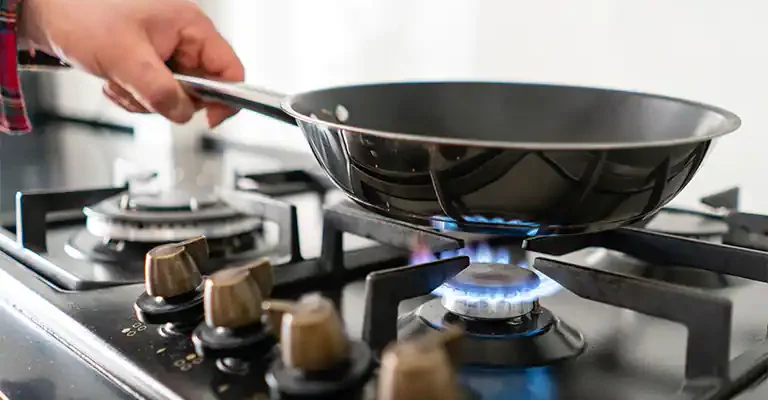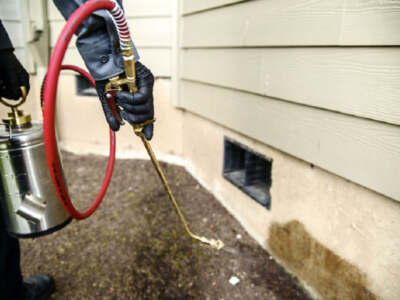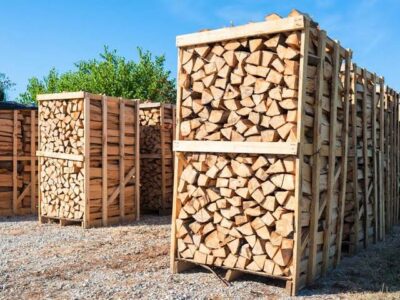Gas leaks, if gone unnoticed, can be detrimental to your health and the health of your loved ones and your home. It can cause explosions, fires, or negative health effects due to the gas itself.
Utilizing safe gas services is the best way to protect your home from gas leaks. Experienced professionals can do routine checks, fix broken pipes or gas valves, and ensure you’re protected from gas leaks in the future.
But since not everyone utilizes these services as often as they should, it’s important to look out for common signs of gas leaks so you can address the problem as soon as you notice it.
This blog will break down five common warning signs of a gas leak in your home, as well as what to do upon seeing these warning signs, and even how to prevent them in the future.
How Common Are Gas Leaks?
Gas leaks are extremely common in homes. While they aren’t always deadly, they have been responsible for countless deaths in this country and beyond. According to a 2015 article by The Atlantic, the United States sees 17 people die per year on average due to leaks or explosions due to natural gas leaks.
These leaks can occur as a result of damage to your home, faulty gas lines or valves, or regular wear and tear from years or decades of use. Gas leaks also can happen if you simply forget to turn a burner off or another gas source in your home. That’s why routine checks are essential to preventing these leaks and further harm to you or your home.
What Gas Leaks Are Common?
Most gas leaks in the home are due to propane or natural gas, though carbon dioxide is a dangerous gas as well that is known to leak in homes. These gasses can leak into the home due to poor ventilation, unsealed or malfunctioned gas pipes or valves, poor exhaust fans, or other damage to your home’s gas system.
These gasses are not good to breathe in for you or your loved ones or pets. They can cause negative health effects from simply dizziness to rash or even asphyxiation. They’re also flammable and easily combustible, which could be deadly or cause irreversible damage to your home.
5 Commons Warning Signs of Gas Leaks
Though there are several warning signs you might have a gas leak in your home, below are three of the most common to look out for.
- The smell of rotten eggs: Anytime you get a foul whiff of rotten eggs or a similar smell like sulfur, it’s a telltale sign of a gas leak. Companies add chemicals to make odorless natural gas produce this smell for your protection if leaked. Make sure you leave the home and call a professional for an inspection if you notice this smell more than once.
- A hissing or whistling sound: A large enough gas leak can produce a hissing sound as it expels from valves or pipes. This is a sign that your gas leak is likely significant, as most can’t be heard loudly. Make sure to monitor your appliances regularly, and leave the home if you notice a hissing or similar sound.
- An abnormally high gas bill: If your gas bill is unusually higher than normal, it’s an indication that a gas leak could be possible in your house. If you didn’t notice any other signs until your bill arrived, the gas leak may not be very large. But it’s enough to be dangerous to both your family’s health and your checkbook. Make sure to leave your home, call your gas company or landlord, or another professional to come do a routine check for gas leaks.
- Air bubbles in standing water: Air bubbles in standing water, both inside and outside the home, can be indicators of a gas leak. If you notice this on more than one occasion, call a professional for a routine check.
- Negative health effects: Even if you haven’t noticed any symptoms yourself, it’s important to keep a watchful eye on both your plants and your pets in the home. If they seem unwell or your plants are dying, you could have a gas leak you didn’t notice before. Common negative health effects from gas leaks include:
- Headaches
- Dizziness
- Skin rash
- Nausea
- Eye irritation
- Throat irritation
- trouble breathing
- Memory issues
- Fatigue
- Tiredness
- Stomach or chest pains
- And more
Can You Prevent Gas Leaks?
The best way to prevent gas leaks in your home is to keep a watchful eye for these warning signs and get routine checks from your landlord or an experienced safe gas professional. If you wait until a gas leak strikes, you might sustain damage to your home, your loved ones or pets, or your personal health.
Plus, a gas leak greatly increases the chances of fire or explosion in your home. If you wait until after this occurs, you could see irreparable damage to your health or your property.
One thing many people do in earthquake-prone areas is install an earthquake valve. This valve basically automatically shuts off your gas lines in the event of an earthquake or natural disaster.
That way, if your home sustains damage from an earthquake, your gas won’t be leaking as a result of the damage. This prevents further damage and danger from a gas leak.
Conclusion
To recap, gas leaks are dangerous, and it’s important to keep an eye out for popular warning signs that might mean a gas leak is in your home, including:
- The smell of sulfur or rotten eggs
- A hissing, whistling, or leaking sound
- Air bubbles in standing water
- Dying or damaged plants
- Symptoms in pets
- A higher gas bill than usual
- Negative health effects in you or your family members
Routine checks to your gas lines is essential. Most recommend it be done every year, though it should be done at a minimum of at least every five years; it’s the best way to prevent gas leaks.
In short, watch out for warning signs and take your home’s gas seriously.










Comments